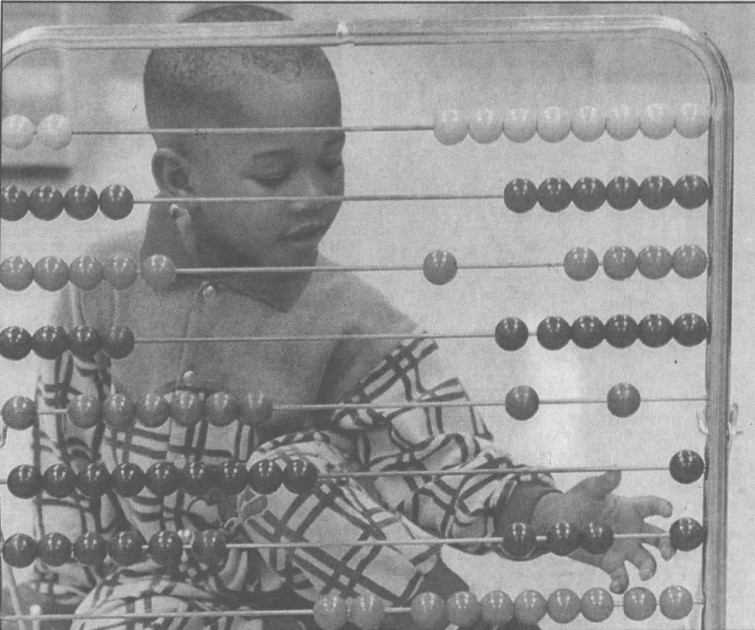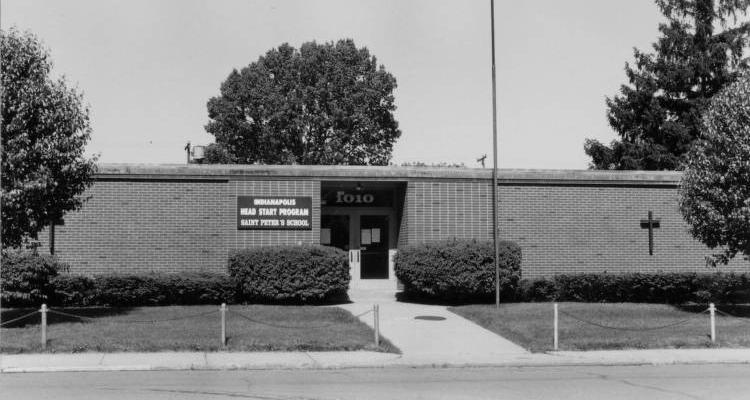Head Start was created by the federal Economic Opportunity Act of 1964 to provide early childhood education and other services to children of low-income families, including children with special needs or other disabilities. In Indianapolis, Head Start officially began in 1965 as a summer program staffed mainly by volunteers. Soon after, the Indianapolis Pre-School Center, already operating under the aegis of , complied with federal guidelines and became a Head Start program. It enrolled 1,350 children at 23 centers throughout the city.

Head Start of Indianapolis aimed to meet specific needs within the community. Accordingly, during its first years of operation, the local program provided free of charge: a daily, half-day education program for three-, four-, and five-year-olds; health services, including speech, hearing and vision screenings, dental exams, and immunizations; services to children with handicapping conditions; opportunity for parent involvement at all levels; social services to Head Start families; bus transportation to and from assigned classrooms; and daily hot lunch and snack. Under Community Action, Head Start followed the academic calendar, running from September to June.
In the early 1990s, Head Start served approximately 1,500 children and employed a staff of 190. Headquartered in Indianapolis Public School 36 at 2801 Capitol Avenue, the program operated at five locations on a 1991 budget of $3.8 million budget granted to Community Action Against Poverty of Greater Indianapolis by the U.S. Department of Health and Human Services. All centers were licensed by the State of Indiana, and all teachers possessed a Child Development Associate credential. Early Head Start, which serves infants six weeks to two years and pregnant women, was created in 1994.

In 1996, after 31 years of management, the Board of Directors of Community Action relinquished the Head Start grant amid shifting priorities at the federal level. Needs of the Head Start Program evolved over the years, necessitating a collaboration with adult education and training programs to increase the self-sufficiency of at-risk families. Community Action did not provide this type of programming, which led to its decision to abandon its management of the Head Start Program.
In response Olga Jefferson-Kerr (director of Head Start of Marion and Hamilton counties), parents on the Parent Policy Council, community members, and staff formed Family Development Services, Inc., which applied for and received the Head Start grant in 1997. The enrollment at that time was 1,879, with all half-day classrooms and door-to-door transportation.
Family Development Services applied for and received the Early Head Start grant in 1998. During the first year, the program enrolled 56 pregnant women, infants, and toddlers, and the classrooms became full day and full year. Bus transportation was not provided.
Through the late 1990s and 2000s, Family Development Services increased full-day classrooms and in 2017 eliminated all half-day classrooms and bus transportation. Enrollment at that time decreased to 1,439 for Head Start, and participation in Early Head Start stood at 120.
The Head Start educational program focused on developing motor, cognitive, language, and social/emotional skills. The curriculum included health, safety, and nutrition education. Parents received an evaluation of their child’s language development and a progress report appraised by the classroom teacher, teaching assistant, and classroom aide. Parents and community volunteers also served in the classroom. After children completed a one- or two-year program, Head Start personnel assisted families who wished to enroll their children in kindergarten.
Family Development Services operates 10 centers in Marion and Hamilton counties. All centers are licensed and enrolled in Indiana’s “Paths to Quality” program—the state’s child care quality rating and improvement system. The program has four different levels. The Family Development Services Head Start centers are evaluated at Level 4, the highest designation in Paths to Quality, which indicates that the center has achieved national accreditation through the National Association for the Education of Young Children (NAEYC).
Head Start enrollment changed in 2020 to serve 1,239 Head Start children and 152 Early Head Start infants and toddlers. Due to the COVID-19 pandemic, the 2020-2021 school year saw some major temporary changes. The enrollment was limited to 610 for Head Start and 108 for Early Head Start to mitigate the spread of COVID-19.

Help improve this entry
Contribute information, offer corrections, suggest images.
You can also recommend new entries related to this topic.